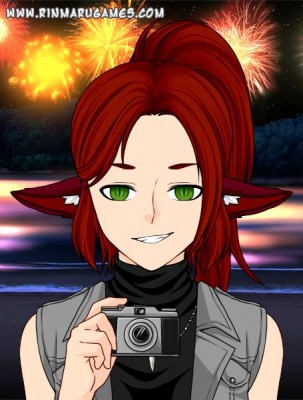From Cats to Military Parades: Photoblogger in Sevastopol Reflects Crimea’s Patriotic Euphoria
by Global Voices / January 13, 2015 / No comments
This article is part of an extensive RuNet Echo study of Russian-language blogosphere in Eastern Ukraine. Explore the complete interview series on the Eastern Ukraine Unfiltered page.
One Ukrainian-born revolutionary is often quoted as coining the aphorism, “you may not be interested in war, but war is interested in you.” Trotsky’s words have proved surprisingly applicable to Eastern Ukraine’s blogosphere, where numerous personal blogs have become increasingly political and military in theme, influenced by events in the bloggers’ own areas.
Sevastopol based photoblogger Natalya Golovan, who blogs on LiveJournal as Black_Drago, is a good example of this process. Though her blog previously focused mostly on nature photography and personal musings, it has taken a much more military turn since February 2014. These days, Golovan is more likely to document a military ceremony or a celebratory fireworks display than the cats she photographed before. To a large extent, this is a reflection of what’s happening in Sevastopol itself.
Maybe it’s kind of pathetic but I like to think that my journal is about Sevastopol. I long ago completely and utterly fell in love with my city. The politicization is mostly a sign of extraordinary times.
As with many other bloggers RuNet Echo has profiled, an important motivation for Golovan is combatting what she sees as false or misleading representation of her own region.
There are a lot of people now who are misled by the [mainstream] media and think that things here are really bad, so they worry about us. Most often it’s relatives living in over countries. I occasionally try to write short notes for them about out situation here.
Golovan is an enthusiastic supporter of Crimea’s “reunification” with Russia and deeply opposed to Kyiv’s current government. But like many Crimean and Eastern Ukrainian bloggers of all political stripes, Golovan is skeptical and rather cynical about the mainstream media, both Russian and Ukrainian.
Unfortunately, Ukrainian journalism has unfortunately shown its extreme bias from the very start of events in Kyiv and there’s no point expecting honest information from them. In Russian journalism, alas, for the most part it’s the same, only the information is given with different accents.
Like many bloggers, Golovan prefers to use social media sources she trusts, timestamped videos and other resources to make sense of events in Ukraine. As for television, Golovan admits she hasn’t owned a TV in years. She does, however, place faith in the actions of ordinary internet users, despite conceding that “there is too much fake information going around the internet and social networks.”
Users can play the role of a microscope, bringing a picture of individual pain (dead relatives and friends, destroyed houses) and of the devastation closer to the public.
Golovan goes as far as to say that
The internet is a very powerful weapon and needs to be used. At the end of the day, to a large degree the victory of the Russian Spring [events in Crimea] was won on the internet.
Golovan’s blog reflects the genuine support of many in Crimea for what they see as a return to historic justice and documents the fireworks displays, military parades, and patriotic bike shows that have characterized this euphoria. But with mobile phone service being cut off and no diplomatic solution to Crimea’s status in sight, one wonders if and when this wave of patriotic enthusiasm will subside. Watching blogs like Golovan’s is a good way to gauge the mood in Sevastopol.
Written by Daniel Alan Kennedy
This article was originally published by Global Voices on August 23, 2014.





